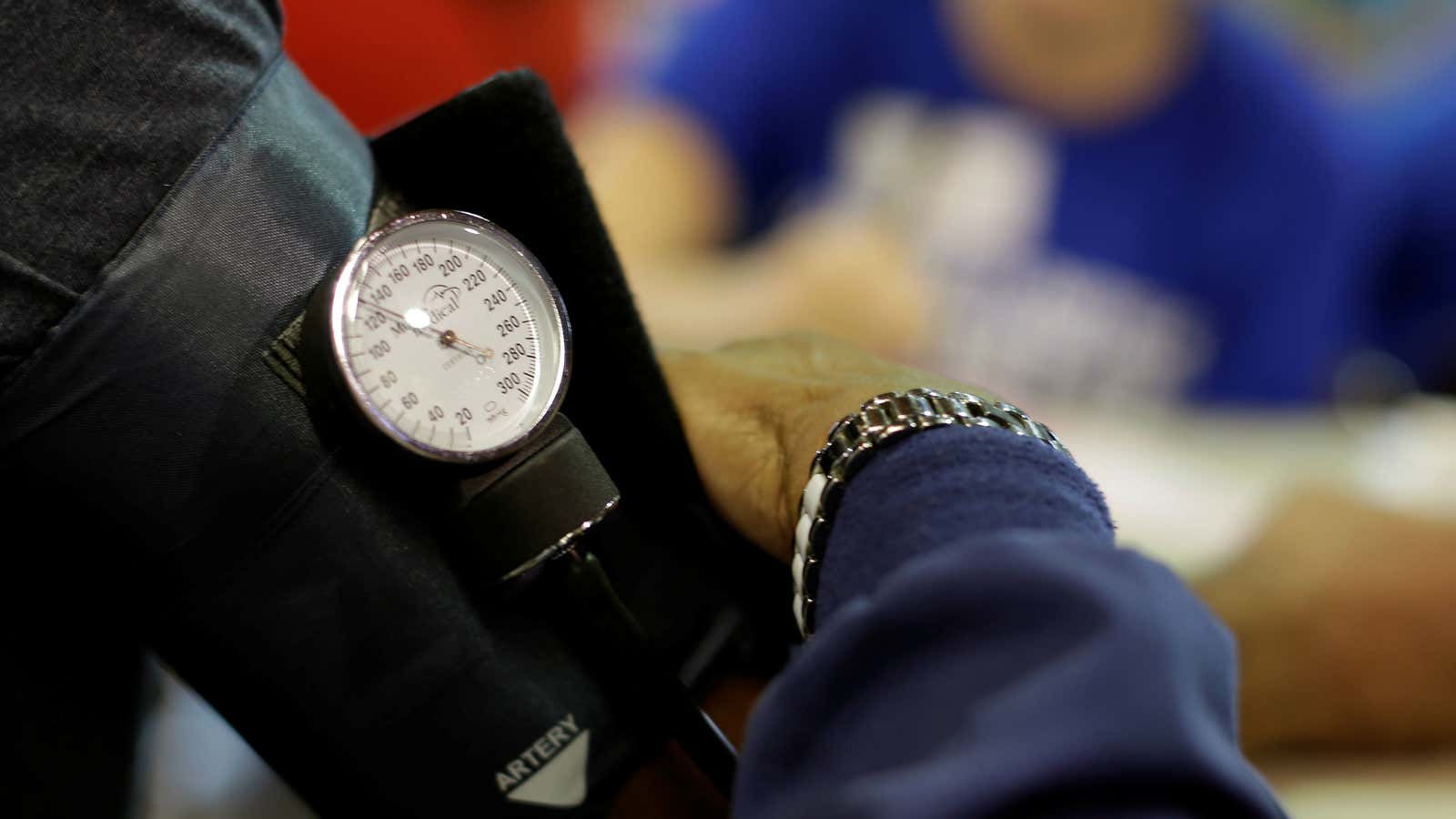Blame it on sedentary lifestyles or work-related stress—hypertension has emerged as a big health risk among Indians, claiming millions of lives annually.
More than half of Indians with high blood pressure are not aware of their condition, which makes the otherwise controllable health problem fatal. Three out of four Indians with the condition have never had their blood pressure measured, even though hypertension is prevalent—45% of Indians have been diagnosed with the condition.
These findings are part of a joint study carried out by the Public Health Foundation of India (PHFI), Harvard TH Chan School of Public Health, Heidelberg Institute of Global Health, University of Birmingham, and University of Gottingen. The study was conducted among individuals aged 15-49 years and published in the US-based non-profit PLOS Medicine journal on May 03.
Underscoring the lack of treatment, the researchers added that less than one in seven Indian patients currently take hypertensive medication, and less than one in 10 had their blood pressure under control.
Consequently, 10.8% of all deaths in India were attributable to the condition in 2018.
Who’s at risk
Adults living in rural areas, men, and the poor, are least likely to receive medical care for hypertension. Only 5.3% of “hypertensive” men and 10.9% of hypertensive women aged 15-49 years have their blood pressure under control through medications, the study said.
There is also a wide disparity between states. For instance, awareness of hypertension ranged from 22.1% Chhattisgarh to 80.5% in Puducherry. Twenty seven major states/union territories have blood pressure control rates below 10%.
“Detection of hypertension is straightforward, treatments are simple yet effective, and hence hypertension can be easily controlled. It is an unfortunate paradox that India does not perform well in any of the measures of detection, treatment and control,” said Dorairaj Prabhakaran, vice-president, research and policy, at PHFI.
The researchers have also noted that there is a huge variation in hypertension screening among states. For example, screening of hypertensive individuals was lowest in Madhya Pradesh (61.3%) and highest in Haryana (93.5%).
Overall, 76.1% of Indians had been screened, 44.7% were aware of their diagnosis, 13.3% were treated, and 7.9% had achieved control of their blood pressure.
“Hypertension can be avoided with regular checkups and lifestyle modifications. India needs to focus on this silent killer to reduce preventable premature morbidity and mortality burden due to cardiovascular diseases,” said author Ashish Awasthi, assistant professor, PHFI.
The lack of awareness has made hypertension one of the most common non-communicable diseases (NCD) in India. “Scaling up screening and treatment for high blood pressure is feasible because the condition is easy to test and inexpensive to treat. Such a scale-up could result in huge benefits for population health in India.” said author Pascal Geldsetzer from Harvard TH Chan School of Public Health.
